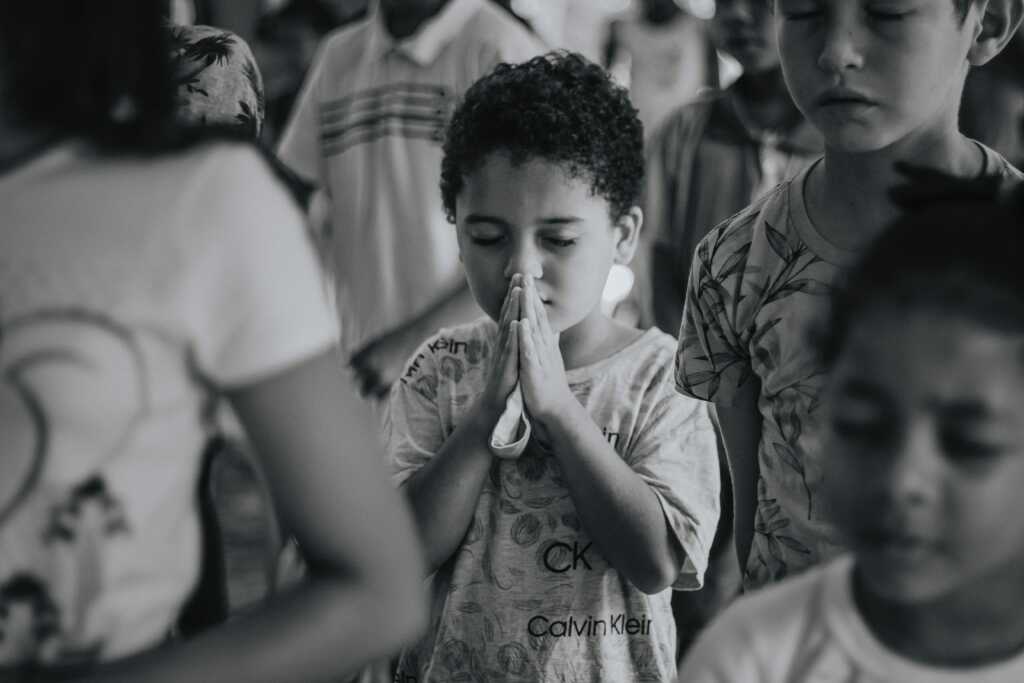The founder of a program providing Bible education during the public school day believes a failure thus far to utilize a little-known law could be the “greatest missed opportunity of the American church to reach the next generation.”
Listen to the latest episode of CBN’s Quick Start podcast 👇
Joel Penton, founder and CEO of LifeWise Academy and author of the new book, “During School Hours: WHY and HOW LifeWise Academy is Reinstalling Religious Education into the Public School Day,” said his organization is experiencing monumental growth as it takes advantage of Release Time rulings allowing kids to get religious instruction during the school day.
It’s a sign of hope amid an increasingly secularized culture.
LifeWise launched in 2019, after he heard about another effort in his hometown of Van Wert, Ohio, to educate children about Christian values during the public school day.
“We were inspired by a program that started in my hometown in 2012,” he said. “People in my hometown started what’s known as a Released Time religious instruction program. Very few people are aware that, in 1952, the Supreme Court ruled that public school students can be released from public school during school hours to attend religious classes.”
Penton is referring to Zorach v. Clauson, a 6-3 Supreme Court case that ruled Released Time instruction is constitutional and permissible.
Watch Penton explain how LifeWise Academy works:
Penton said there are some criteria that must be met in order to successfully use Released Time laws: the program must be off school property, must be privately funded, and must have parental permission.
In an era in which the “separation of church and state” is a line imbued upon almost everything in the political and social arenas, some might be surprised to hear about this legal method of Bible teaching.
But, today, 26 states have Release Time laws, and Penton is working with schools to use the law to help bring Christian education to kids and families.
Penton said it has been a “whirlwind” since the the 2019 start of LifeWise Academy, an effort to bring these classes to communities coast to coast.
“We launched with two schools but, as of today, we’re serving 133 schools across four states,” he said, noting LifeWise is approved to be in over 260 schools in more than 10 states next year.
Once a week, kids are bussed from their public schools to a local church or facility, with the schedule churning and rotating. For some schools with a plethora of kids in the program, the buses continue to run throughout the day as new groups shuffle to and from LifeWise.
“We have a program, for example, now in Northwest Ohio … there’s a thousand students in the elementary school,” he said. “There’s 900 students in Lifewise, and so it’s two classrooms at a time, five times a day, five days a week. Kids are rolling through, we pick ’em up on the big, red Lifewise bus, take them to the YMCA where we teach them the Bible, bring them back, and pick up more kids.”
Penton responded to critics who might be aghast or at least confused over how a program like this can run during the public school day. He explained the mistakes people make when discussing the separation of church and state, with some assuming this means kids can’t learn the Bible during school hours.
“What we do is a beautiful manifestation of the concept of the separation of church and state, and the students are literally removed from the state school in the middle of the school day, and they’re separated from it physically,” he said.
Debate aside, the law is clear — and Penton believes Christians and churches should be speaking up and paying attention.
“This seems to be the greatest missed opportunity of the American church to reach the next generation,” he said.
Penton said he and other leaders learned a lot from the initial program in Van Wert, as they kept pondering the phrase “missed opportunity” at the start of their journey, realizing they needed to find a way to remove barriers to bring the Bible to kids.
“We could remove those barriers by providing all the systems, processes, resources, training, curriculum, put it all in a box so there’s no need to reinvent the wheel,” he said. “We had this theory that this thing might just spread, and perhaps the time is right that, as a culture, we’ve gotten to the point that we realize we have to do something.”
LifeWire provides a 10-step process to help people launch these programs, and offers templates and tools to make it a reality.
These theories have played out exactly as planned. LifeWise’s initial goal of serving 25 schools by 2025 was absolutely eviscerated right after the organization launched, and with more than 260 schools potentially on the docket for next year, there’s no telling how much larger this could become.
The real-life impact of LifeWise is profound.
Penton shared one story of a pastor who just baptized a girl who had never come to church before joining the program at her school. Now, her entire family attends, and her life has been profoundly changed.
“I get texts all day long and emails all day long with all these stories of things that are happening,” Penton said.
Read more about Penton’s story and the issue more broadly in his new book, “During School Hours: WHY and HOW LifeWise Academy is Reinstalling Religious Education into the Public School Day.”
***As the number of voices facing big-tech censorship continues to grow, please sign up for Faithwire’s daily newsletter and download the CBN News app, developed by our parent company, to stay up-to-date with the latest news from a distinctly Christian perspective.***



